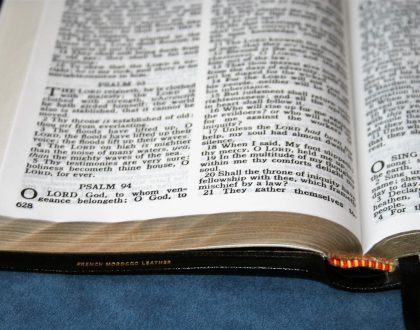What is a Baptist Brider?

The term “Baptist Brider” refers to a belief system held by a minority of independent Baptist churches around the world. The exact percentage would be impossible to determine since independent Baptists are “independent” and therefore don’t all subscribe to the same directories or accounting systems.
The term itself is one that has been adopted over time for convenience, and emphasizes the belief held by this group that only Baptists from the proper belief system are part of the body of Christ, and therefore the “bride” of Christ; hence the phrase. This group of Baptists does not have a term or phrase to describe themselves, and they typically deny the phrase “Baptist Brider.” Another term that would apply would be “landmarker”, or the phrase “local-church-only.”
This system of beliefs affects many doctrines and practices, including baptism, church membership, the Lord’s Supper, the understanding of our position “in Christ”, and the way other churches and believers are viewed. As will be shown, this system of beliefs cannot be defended with God’s Word, and typically relies upon church history and church authority to defend its positions
History
Baptist Bride beliefs really didn’t come into prominence until their founder, a Southern Baptist pastor named JR Graves, wrote some papers in the mid 1800s putting forth his beliefs as “landmarks” of the faith, and claiming that there had always been Baptist churches that subscribed to his position. Over the course of several years his “movement” resulted in many churches separating from the Southern Baptist Convention and forming independent Baptist “landmarker” churches. The movement was a reaction to the progressivism that was permeating churches at the time. It remained a relatively small fraction of Baptists until the mid 1900s when independent Baptist churches saw modernism and ecumenicalism creeping into their churches and embraced the “landmarker” beliefs as a reaction, believing that true independent Baptist churches needed to return to “old landmarks” to stay true to God’s Word.
Baptist Brider Beliefs
Baptist Briders believe that the “body of Christ” (and the “church”) only refers to local churches. This is the foundational belief of their system. Along with that comes the belief that “true” churches are only those that have been started with the proper “authority”, which they believe has been literally passed from church-to-church from the time of Christ until now. This “succession” requires faith on their part since it cannot be proven. In referring to the local churches, they use words like “perpetuity”; “continuance”; “perpetual” to describe this successive process. This belief in passed-down authority leads to the belief that baptism can only be administered with the proper “authority”, i.e. only churches that believe as they do.
A Bible believer understands that it is “God’s Word” that gives the authority to start a church, baptize, etc. The Bible makes it clear that the pastor of a church should be ordained (i.e. laying of hands by other elders, 1Timothy 4:14), as given in Acts 14:23 and Titus 1:5. This is an important process for confirming that a pastoral candidate has the proper Biblical experience, calling, training, and meets the qualifications of 1Timothy 3:1-7 and Titus 1:6-9. But again, this authority comes from the Word of God, not from a 2000-year succession.
By believing in only “local” churches, they eliminated the belief in the “universal church” or “one body of Christ” made up of all saved people, because the original subscribers to these beliefs were convinced that belief in a universal church is what led to modernism, ecumenicalism, etc. The problem with this belief is the many Scriptures that have to be “twisted” or “retranslated” or “better explained” to be consistent.
The majority of the verses mentioning the word “church” are referring to the local church. This isn’t surprising since the Greek word ekklesia refers to an assembly. However, the following Scriptures clearly teach that the local church is simply a reflection of the true “church” or “body” (the “one body” mentioned in Ephesians 4:4).
In 1Corinthians 10:32 Paul refers to the dispensational group “the church of God”, while referring to the other two dispensational groups, Jews and Gentiles, all three referring to the complete group or “body”. In 1Corinthians 15:9, Paul explained that he had persecuted “the church of God” (also see Galatians 1:13). Jesus, in Matthew 16:18, said that He would (implying in the future) build His “church.”
Ephesians 5:23-32, For the husband is the head of the wife, even as Christ is the head of the church: and he is the saviour of the body. Therefore as the church is subject unto Christ, so let the wives be to their own husbands in every thing. Husbands, love your wives, even as Christ also loved the church, and gave himself for it; That he might sanctify and cleanse it with the washing of water by the word, That he might present it to himself a glorious church, not having spot, or wrinkle, or any such thing; but that it should be holy and without blemish. So ought men to love their wives as their own bodies. He that loveth his wife loveth himself. For no man ever yet hated his own flesh; but nourisheth and cherisheth it, even as the Lord the church: For we are members of his body, of his flesh, and of his bones. For this cause shall a man leave his father and mother, and shall be joined unto his wife, and they two shall be one flesh. This is a great mystery: but I speak concerning Christ and the church.
In this passage, God interchanges the word “church” and “body”. For the word “church” to only refer to the local church, that would therefore mean that Jesus “gave himself” only for the local church (note the Word “it”). We know from the multitude of Scriptures that teach otherwise that Jesus gave Himself for everyone, and that his payment for sins is applied to every person that believes on Him, whether they join a “local church” or not. The passage also states that this “church” is to be holy and without blemish. Have these words ever described a local church? This passage creates quite the problem for the Baptist Briders.
1Corinthains 12:13, For by one Spirit are we all baptized into one body, whether we be Jews or Gentiles, whether we be bond or free; and have been all made to drink into one Spirit.
This passage makes it clear that we are all baptized into one body by God’s Spirit. Baptist briders believe this is referring to water baptism placing a believer into the local church, and that the word “Spirit” shouldn’t be capitalized. This explains why they believe that water baptism makes one a member of the “body of Christ” or the “church”, giving much power to the waters of baptism. However, other passages make it clear that this baptism is referring to a supernatural Spirit baptism (also referred to as the baptism of the Holy Ghost, prophesied of by John in Matthew 3:11; Mark 1:8; Luke 3:16; John 1:33) that takes place for every believer at salvation, for example:
Acts 1:5, For John truly baptized with water; but ye shall be baptized with the Holy Ghost not many days hence.
Romans 6:3, Know ye not, that so many of us as were baptized into Jesus Christ were baptized into his death?
Galatians 3:27, For as many of you as have been baptized into Christ have put on Christ.
Colossians 2:10-12, And ye are complete in him, which is the head of all principality and power: In whom also ye are circumcised with the circumcision made without hands, in putting off the body of the sins of the flesh by the circumcision of Christ: Buried with him in baptism, wherein also ye are risen with him through the faith of the operation of God, who hath raised him from the dead.
1Peter 3:21, The like figure whereunto even baptism doth also now save us (not the putting away of the filth of the flesh, but the answer of a good conscience toward God,) by the resurrection of Jesus Christ:
If baptism saves us, then this cannot be referring to water baptism, but must be referring to the baptism of the Holy Ghost that God performs at salvation.
More Scriptures On the One Body:
Romans 12:5, So we, being many, are one body in Christ, and every one members one of another.
Ephesians 1:22-23, And hath put all things under his feet, and gave him to be the head over all things to the church, Which is his body, the fullness of him that filleth all in all.
Ephesians 2:15-16, Having abolished in his flesh the enmity, even the law of commandments contained in ordinances; for to make in himself of twain one new man, so making peace; And that he might reconcile both unto God in one body by the cross, having slain the enmity thereby:
Ephesians 3:6, That the Gentiles should be fellowheirs, and of the same body, and partakers of his promise in Christ by the gospel:
Colossians 1:18, And He is the head of the body, the church
Colossians 1:24-25, fill up that which is behind of the afflictions of Christ in my flesh for his body’s sake, which is the church: Whereof I am made a minister, according to the dispensation of God which is given to me for you
Colossians 3:15, And let the peace of God rule in your hearts, to the which also ye are called in one body; and be ye thankful.
Doctrinal Problems Resulting from a Misunderstanding of God’s One Body:
As you can see, the Bible clearly teaches that every believer is baptized into the one body of Christ (“the church”) by God’s Spirit at salvation. This is a beautiful truth and a major part of the security that we have “in Christ.”
Because we are now part of Christ (part of His body), we are “not condemned” Romans 8:1; “sanctified” 1Corinthians 1:2; “a new creature” 2Corinthians 5:17; “in heavenly places” Ephesians 1:3; “chosen” Ephesians 1:4; “holy and without blame” Ephesians 1:4; “accepted” Ephesians 1:6; “redeemed” Ephesians 1:7; have an “inheritance” Ephesians 1:11; “sealed” Ephesians 1:13; “quickened” Ephesians 2:5; “complete” Colossians 2:10, and “preserved” in Jude 1:1.
Ephesians 4:4-5 mentions the “one body”, and the “one baptism”. The “one body” must refer to the body of Christ and the “one baptism” must refer to the baptism performed by God Himself at salvation, all other baptisms (immersions), i.e. baptism of repentance, baptism of suffering, baptism of fire, local church baptism, are reflections of the true one.
If the “body” and “church” are only local, then many problems arise. That means water baptism makes one part of the body of Christ (local), and that those who haven’t been baptized in the proper kind of church are therefore not part of the body of Christ (or the “bride of Christ”). Baptist Briders often refer to other believers as “the family of God”, a phrase not found in the Bible but convenient to describe those who are going to heaven but are not part of the “body of Christ.” God wrote in 1Corinthians 1:17, “For Christ sent me not to baptize”, indicating that water baptism does not infer any power, such as making one a member of the body of Christ.
Following the Baptist Brider system also leads to the belief that churches which do not subscribe to these beliefs are not “true” churches and have not been given authority, therefore their baptisms are invalid. This explains why Baptist Briders re-baptise so many believers, because they see most baptisms performed by other churches as invalid, and because they see baptism as the “door to the church”, when it is actually a step of obedience which all believers should follow prior to joining a local church. Which church did Philip baptize the Ethiopian eunuch into when he baptized him in the desert in Acts 8? Biblical teaching and preaching protects the church from false doctrine, not baptism. Many Baptist Brider churches chase sincere believers away with the insistence on re-baptism. Isn’t it more important that those sheep be fed God’s Word and grow?
Church membership also becomes more complicated. If water baptism is what makes a believer part of the “body of Christ”, then he is a member of that body until he becomes a member of another body, he cannot “withdraw” his membership. Hence the membership rolls of Baptist Brider churches are much larger than their attendances. They have partially dealt with this issue with the creation of “letters of transfer”, moving one’s membership from one body to another. This sounds nice and may be prudent for churches to follow, but this letter is not found in the Bible. In addition, if Baptist Briders were truly consistent with what they believe, they would baptize every believer that wanted to join their church no matter how many times they’ve been previously baptized since they believe that water baptism is what makes them a member of a body.
Speaking of church membership, if the body refers to the local body only, then Paul himself claimed to be a member of multiple bodies (note the word “we”):
Romans 12:5, So we, being many, are one body in Christ, and every one members one of another.
1Corinthians 10:17, For we being many are one bread, and one body
Ephesians 5:30, For we are members of his body
The Lord’s Supper also becomes more complicated because Baptist Briders believe that only they have the authority to administer it. Believers who aren’t members of their church are therefore not members of their body and shouldn’t partake in their remembrance. Therefore most Baptist Brider churches practice “closed” communion, where only members of that “body” are welcome.
Conclusion
Beware of this system which marginalizes churches not like them, gives supernatural power to the baptismal waters, and claims that only they will be part of the bride of Christ at the marriage supper of the Lamb. Believing what the Bible teaches, that there is “one Body” of Christ made up of all believers, and that body is called “the church”, does not make one liberal or worldly, it makes him a Bible believer! Church authority comes from God’s Word, not from an imaginary line of succession. If baptism is Biblical, it is valid. Membership in a local church is separate from the step of obedience called baptism.
Recommended Posts

All the Commandments of the New Testament (John 14:15; 1John 5:3)
February 15, 2021

How To Choose the Right Friends
August 4, 2017

Suggested Memory Verse Starting List
August 4, 2017

